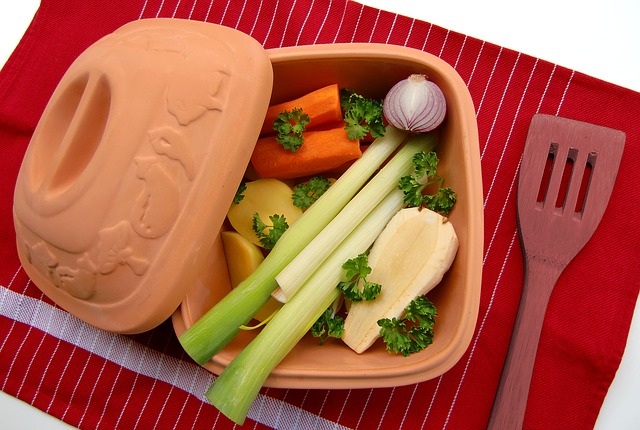Breaking Bad Habits You Thought Were Good
We all have some deeply ingrained truths about nutrition – we know what’s good for us and we know what’s bad. Unfortunately, if those truths are not actually true, we may be hurting ourselves by eating well. As they say in weightlifting “reals over feels.” So hang on, because we are going to break down some of your firm beliefs about what’s good and bad for you and show you how ten simple ways you can get fitter and healthier in only twenty-one days.
Why the twenty-one day benchmark? After three weeks of doing something consistently, our bodies create a habit. This is true of both good and bad habits. Each of these truth bombs has an action step if you want to give it a twenty-one day trial run.
1. Fat is Bad
Yes. And no. Your body needs fat to thrive. And some fats are filled with added bonuses like Omega 3’s which are essential for good health. Fat is a calorie dense medium (9 calories per gram,) compared to protein and carbohydrate (4 calories per gram.) But that doesn’t make it a bad choice. It’s just as effective as any other calorie source for running your body. The food containing the fat and the other compounds you are eating along with it are the culprits that really affect your health.
Bad Fats = poor quality fats and chemically altered fats can be acidic, putting your body in a state of inflammation.
Good Fats = high-quality fats like grass-fed beef, organic and pasture-raised animal fats, coconut oil, olive oil, sesame oil and avocado oil can have a soothing effect on your body and reduce inflammation.
What can you do? Switch out your
2. A Vegan Diet Is the Healthiest Choice
Once we start watching animal cruelty videos, it may trigger a response to jump on the vegan bandwagon. People tend to cut out all meat and dairy for about a week, and then relapse and go back to their original diet because it’s too hard.
But is a vegan diet healthy? Different people require varying amounts of protein and carbohydrates. A vegan diet needs to be carefully planned to include a broad range of macronutrients because while vegetables are typically healthy, they are also very low in calories that your body needs for sustained energy.
Also, many of my vegan friends are sugar addicts. For the record, cane sugar affects vegans the same way it affects their meat-eating allies (spikes blood sugar and leads to long term energy loss and ‘crashes.’)
What can you do? Slowly reduce the amount of meat, eggs and dairy you eat, while ramping up your protein and fat sources from vegetables. A vegan lifestyle tends to promote rapid weight loss, so be aware of your starting weight and if you feel constantly feel sick, tired or have cloudy thinking, you may need to give up the vegan diet and go back to eating meat and/or dairy.

3. I Should Eat A Gluten-Free Diet
Gluten is a compound found in wheat (and barley and rye,) where the triangulated protein ‘gliadin’ (part of the lectin family,) can be hard for some people to digest. In some people it can cause stomach upset, bloating, weight gain, inflammatory response, and ‘leaky gut’ syndrome. In rare cases like Celiac disease, people are so sensitive that consuming products that have even come into contact with gluten can cause dire repercussions of gastric distress (mass amounts of diarrhea.)
But many people can handle gluten just fine. While you should be aware of your carbohydrate intake and make sure you eat a balanced diet that suits your body type and activity level, wheat products are okay for some people to eat.
What can you do? Wean yourself off until you are able to cut out all gluten products from your diet for at least six weeks. Then reintroduce gluten slowly and see if your body suffers because of it. If not, then you are not gluten sensitive. Keep in mind that bodies can change over time and you gluten tolerance tends to wane as you age.
4. I Should Work Out Three Times Per Week
One common belief being circulated is that you should work out as hard as you can, then take a day off to let the muscles rest. While this it is good to rest a muscle group (and you can alternate days for muscle groups you are working out,) this advice is for strength training. In fact, high-intensity strength training can cause serious injury unless properly conditioned and prepared for.
The human body performs optimally when used aerobically every single day of your life. Strength training within your limitations is an excellent bonus to a daily aerobic workout.
Not using your body can lead to fatigue, muscle atrophy, and often leads to weight gain and pain in the joints. Additionally, this can result in poor posture and lead to muscular aches, and continuous lower back pain.
What can I do? Move your body! There are thousands of options, and most of them are free. Try replacing your driving time/passenger time with walking or bicycle riding. But make sure to start slowly and build up your activity level over time if you are out of shape, or starting an unfamiliar activity.
5. I Should Drink Plenty of Water
No, you should not be drinking plenty of water. It can actually damage your body to drink lots of filtered water, by creating an imbalance in your natural levels of salts and electrolytes. Magnesium deficiency is one common consequence, and can have serious and painful repercussions.
Your body has a natural tendency to keep itself in harmony, and optimally you would only need to drink a small of amount of water that contains trace minerals. A diet rich in vegetables and alkaline foods will also satiate your body’s need for water.
However, you may have to drink more water if you deplete your body by:
– Drinking coffee, tea or alcohol
– Eating salty foods
– Overexerting from too much exercise
– Being sick (diarrhea and vomiting)
What can you do? One incredibly easy fix is to purchase trace minerals and add a small amount to your water. If you are still feeling symptoms of dehydration, you can try reducing your intake of coffee, tea, alcohol, and salty foods. Additionally, monitor your activity level and increase your water and electrolyte intake when you exercise.
Jules Fox wrote this article. You can find more about him or his books at his website.


What perfect timing for this article. The new year brings goals of self-improvement for many. Even if you cannot commit to all the above the important part is getting started and doing what you can to improve your health, energy and reach your goals.
I keep a glass of water next to me and it makes it easy to drink water. I have friends that are crazy about how much they drink and measure it everyday. My philosophy is keep it simple;.
Bookmarked. Thanks for the post and the dieting info
I totally agree with most of these. I’ve been drinking a lot more water and eating a bit healthier myself.